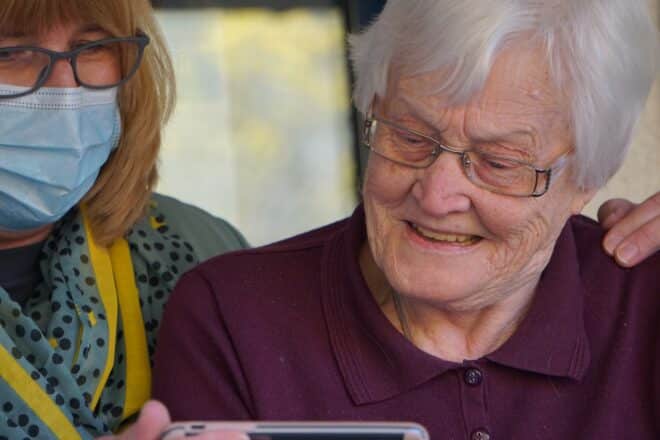In the article “Navigating Complex Conversations: Treat Ageing Parents as Adults”, you’ll explore the delicate issue of elderly parents who resist assistance—a predicament encountered by about 77% of adult children, per a Penn State University study. The piece offers practical advice such as empathizing with your parents’ worries and fears which might stem from the fear of losing independence, depression, or anxiety. It encourages emphasizing their abilities, treating them with dignity, and prioritizing essential safety topics. Toleration towards unfavorable instances, validating their choices, structuring an extensive support network and even courteously asking them to accept aid for the sake of their children’s peace of mind are advocated as efficient strategies. It underlines the significance of self-care for caregivers, suggests techniques of stress management and the importance of involving your parents in their care planning. Overall, the article enlightens you on how to maneuver these tricky conversations in a loving and sensitive manner to uphold their self-respect and strengthen the emotional bonds.

Understanding Parents’ Concerns and Fears
Some folks hesitate when it comes to receiving help from family members, especially their children. It is crucial to understand that elderly parents’ fears and concerns can often drive this hesitation. It might be rooted in worries of losing their independence, or they might be dealing with mental health issues such as anxiety or depression.
Uncovering reasons behind refusal of help
The reluctance to accept assistance doesn’t originate from a place of stubbornness. More often, it is based around deeper fears and emotions. You might need to do some detective work to uncover these reasons. Once you understand the hesitation, it becomes easier to address.
Addressing fears of loss of independence
Many elderly folks attach great value to their independence and fear losing it. Assure your parents that accepting help doesn’t mean they’re losing their autonomy. You merely want to assist them in maintaining their self-sufficiency.
Mental health issues: depression and anxiety in the elderly
Depression and anxiety are common in elderly people and can increase their resistance to help. With some patience and empathy, you can help them recognise and address their mental health challenges.
Evaluating the Current Situation
Instead of focusing solely on the issues that your parents are facing, take note of what they can still do. This aspect is crucial because it encourages a sense of autonomy in them.
Identifying what parents can still do
Acknowledging and appreciating your parents’ existing capabilities is as crucial as addressing the areas where they need help. It helps maintain their self-esteem and confidence, in turn promoting a healthier relationship between you.
Promoting their sense of independence
Independence is empowering for everyone, particularly the elderly. Whenever possible, involve your parents in making decisions and allow them to do tasks they’re capable of doing safely.
Avoiding jumping to conclusions based on present condition
Understand that age-related challenges can fluctuate. Your parents might have good days where they manage tasks well, and other days where they struggle. Try not to jump to conclusions about their abilities based on a single observation.
Promoting Productive Conversations
It’s essential to maintain a respectful and empathetic approach when talking to your parents about their challenges. Remember, they are adults, not children.
Treating parents as adults, not children
Direct conversation is a proven method for resolving issues and promoting understanding. Speak clearly and candidly, avoiding any tone that might seem condescending or authoritative.
Avoiding authoritative behavior
Avoid expressing superiority or attempting to force your thoughts and decisions onto your parents. Instead, offer your opinions politely and patiently to maintain a harmonious relationship.
Using empathy and understanding in communication
Remember, just as you are walking an unfamiliar path, so are your parents. Approach them with empathy and understanding when discussing their concerns.
Prioritizing Safety-Related Issues
When elderly parents deny the need for help, it is essential to prioritize safety-related concerns. This approach ensures they are protected from immediate risks.
Identifying and addressing immediate risks
Look for areas in your parents’ current lifestyle that may pose a risk, such as unsafe living conditions or health issues. Highlight these issues and take measures to mitigate them.
Remaining calm and persistent
Patience and persistence are key when addressing safety concerns. Getting frustrated or angry won’t help the situation. Instead, communicate in a calm and collected fashion, reassuring your parents that your efforts are for their safety.
Developing safety plans and routines
Once you’ve identified potential risks, work on creating safety plans and routines. Show your parents how these steps are about safety and maintaining their independence rather than limiting their freedoms.

Acceptance of Parents’ Decisions
It’s important to accept that you cannot have complete control over your parents’ lives. Balancing their autonomy and safety is a delicate act and requires maturity.
Recognizing limits to influence over parents’ choices
Your parents are, ultimately, free to make their own decisions. Even if you disagree with their choices, showing acceptance can be a powerful element in your relationship.
Reducing stress through acceptance
Acceptance can also be a powerful stress reliever. Instead of continuously worrying about what your parents are doing, accept their decisions. This mindset can lead to greater peace of mind for everyone involved.
Balancing parental autonomy with safety concerns
While it’s essential to respect your parents’ autonomy, their safety shouldn’t be compromised. It’s a fine line to walk, but with mutual respect and empathy, it’s possible to keep that balance.
Creating a Comprehensive Support System
Creating a support system for your parents can be enormously beneficial. By involving other people, such as medical professionals, neighbors, and religious leaders, you can provide a holistic support base for your parents.
Involvement of doctors and medical professionals
Involving healthcare professionals can be crucial. Doctors can not only guide you in managing your parents’ physical health but can also provide valuable industry insights.
Engaging neighbors and friends
Old friends or neighbors can offer social support and a sense of camaraderie to your parents, which can be especially helpful in making them feel less isolated.
Leveraging religious leaders in providing emotional support
If your parents are religious, involve their spiritual leaders. These individuals can provide emotional support and comfort, especially in challenging times.

Appealing to Parental Love
There’s a unique bond between parents and children that you can leverage when seeking to persuade your parents to accept help.
Asking parents to accept help for their children’s peace of mind
Most parents want the best for their children, and that includes not wanting their children to worry needlessly about them. Highlight that their acceptance of help, more than anything, will bring you peace of mind.
Using emotional bond to enhance receptivity to help
Reinforce your appeal with the love and connection that you share. Emphasize that you aim to help them out of earnest concern for their wellbeing.
Approaching the subject from a place of love and concern, not control
Remember always to communicate from a place of love, not control. A loving approach will make your parents feel less defensive and more receptive to what you’re saying.
Managing Personal Stress
Taking care of elderly parents can be stressful. It’s essential to Recognize caregiver stress and burnout, and seek support when needed.
Understanding caregiver stress and burnout
Rigorous caregiving can lead to stress and eventual burnout. It’s important that you recognize and address these feelings promptly to maintain your own health.
Seeking support from friends, therapists or support groups
A support network for caregivers is as crucial as the one for the parents. Whether it’s a close friend, a therapist or a support group, don’t hesitate to ask for help when you need it.
Identifying stress-relief activities and ensuring self-care
Stress-relief activities such as yoga, reading, or gardening can be hugely beneficial. Prioritizing self-care is essential to continue taking care of your parents effectively.
Involving the Elderly in Future Planning
Involving your parents in planning their future care promotes their sense of control and autonomy, and encourages them to accept help.
The value of incorporating parents’ input in their care plans
Your parents’ ideas and perspectives matter when planning for their care. This practice not only makes them feel respected and valued but also gives them a sense of ownership of the chosen path.
Motivating parents to accept help
By being part of the decision-making process, your parents will more likely be motivated to accept assistance, knowing that they played a role in shaping those decisions.
Building stronger bonds through participative decision-making
This process not only addresses the necessary issues but can also strengthen your relationship. Participative decision-making provides an avenue for meaningful conversations, leading to mutual respect and understanding.
Displaying Concerns in a Sensitive and Loving Manner
When elderly parents refuse help, coping with resistance may seem challenging. However, a sensitive and loving approach can significantly help in such situations.
Effective communication strategies
Implementing proper communication strategies such as empathetic listening, open-ended questions, and clear, respectful conversations can make a substantial difference in your interactions.
Coping with resistance or denial
Resistance or denial of help can be frustrating. However, it’s essential to understand where it is coming from and assure your parents that their feelings are valid and respected.
Nurturing trust and reassurance throughout the process
Building trust is fundamental to any relationship, including that between you and your aging parents. Constantly reassure them that your assistance is based on love, respect, and concern for their wellbeing.
